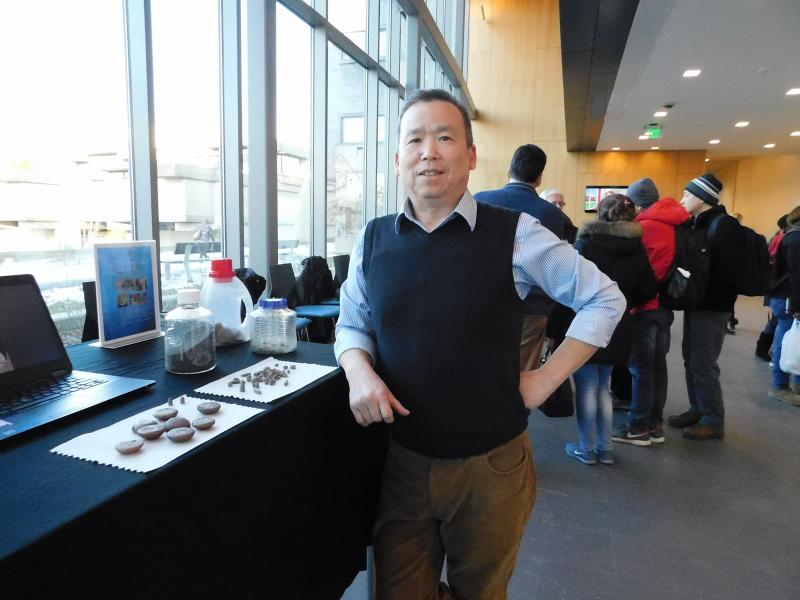UMass School of Business highlights entrepreneurs, innovators
Business students at the University of Massachusetts Dartmouth’s Charlton College of Business had the opportunity to meet with business people doing everything from dissolving bullets to re-imagining mental health care on Jan 22.
The school hosted the entrepreneurs so students could network, ask questions about the job search, and find out what it takes to bring an idea to life.
Bob Anderson of L3 Technologies said his company, which creates underwater robotics, has hosted 50 interns over the past 12 years and hired eight UMass graduates. The company has also hired professors to do research.
One UMass professor, Dr. Chen-Lu Yang, is a researcher looking to partner with a business, or business-minded person to turn his invention into a product. Yang has created a method of recycling bullets that is safe and salvages 90 percent of the material, including lead, copper, and gunpowder. Currently, bullets being disposed of by the military or police are burned, which is dangerous, expensive, and causes a lot of pollution.
Yang tumbles the bullets in water, treated with sulfuric acid to make it conduct electricity, alongside a rotating steel plate. Over time, the copper is attracted to and scraped off of the steel plate, the gunpowder floats to the top, and the lead sinks to the bottom. All the materials, including the water, can be reused.
Another entrepreneur hoping to change the conventional way things are done is Bryan Robertson, one of the co-founders of Mindyra, a program that helps primary care doctors diagnose and treat mental illness, substance abuse, and learning difficulties.
The company, working with psychologists, designed a survey that is responsive to each answer by the patient and can point to 67 diagnoses. Robertson hopes to streamline the diagnosis and help primary care doctors, who are not mental health specialists, more accurately diagnose patients. Following the diagnosis, the program lays out possible treatments and enables doctors to check in through regular patient surveys.
Over time, the company will be able to use the data it collects to adjust its algorithms and better recommend treatments by looking at the treatment outcomes for different people. What works well for young men may not be as effective for older women, for example.
To contact Dr. Yang, email cyang@umassd.edu. For more information about Mindyra, go to www.mindyra.com.














